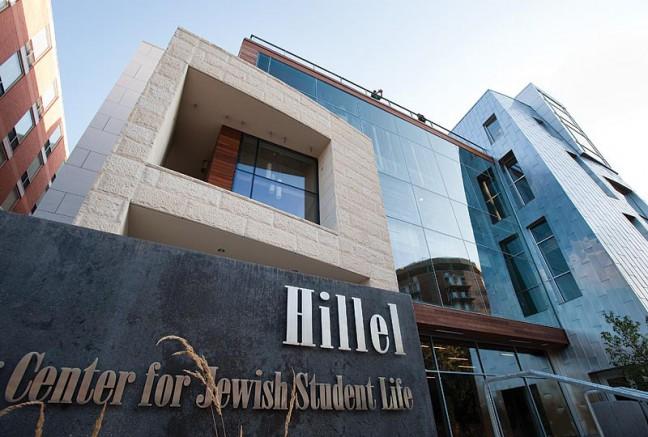Though the number of reported antisemitic incidents decreased by 4% in 2021, “troubling trends” are on the rise, according to a recent audit from the Jewish Community Relations Council with the Milwaukee Jewish Federation.
The 95 antisemitic incidents in the audit showed an 80% increase in high school and middle school antisemitism. COVID-19 conspiracies or comparisons increased by 46%, Holocaust minimization increased by 30% and social media activity increased by 30%, the audit found.
The audit reflects a broader trend of hate, Executive Director of the Jewish Federation of Madison Alan Klugman said.
“We’ve become more and more intolerant, and we’re experiencing a rise in hate crimes against all forms of people,” Klugman said. “When a situation like that arises, antisemitism increases as well.”
The JFM’s Community Relations Committee facilitates communication between the Jewish and non-Jewish communities, according to the JFM website. This includes investigating reports of antisemitism.
When an incident of antisemitism is reported, the federation contacts the Anti-Defamation League, then the police if the acts are criminal, Klugman said. The federation records all reported incidents, which are included in the audits like the one released by the Jewish Community Relations Council, Klugman said.
While the overall number of incidents decreased, the issue of antisemitism in Wisconsin is still worsening, the audit said.
“Please remember that this is a snapshot of antisemitism in Wisconsin, and even decreases do not distract from the overarching upward trend of incidents,” the JCRC audit said.
Though the audit shows incidents in Milwaukee, the Jewish community in Madison has faced antisemitism too — even on the University of Wisconsin campus, UW Hillel Rabbi Judy Greenberg said.
UW Hillel, the center of Jewish life on campus, contacts multiple sources on campus when antisemitism is reported, including the chancellor, Greenberg said. Last month, UW released a statement condemning several antisemitic incidents.
Though she hasn’t personally connected with each one of the roughly 4,200 Jewish undergraduates at UW, Greenberg said she still understands the antisemitism they face on campus.
“There is always a dialogue between Hillel and university officials, and we always make space for students who want to talk and who want to process,” Greenberg said.
But not all acts of antisemitism are physical or verbal, Greenberg said. Failure to recognize Jewish holidays when planning the academic calendar is also harmful, she said. This academic year, the first day of fall classes fell on the second day of Rosh Hashanah, a Jewish holiday meant for rest.
“Those are things we fight against all the time, but we never seem to be able to get ahead of them,” Klugman said.
Still, there was an effort by UW to recognize and celebrate the holiday, Greenberg said.
For instance, the Welcome Week program coordinated with Hillel to organize a water clean up event, called “Repair the Lake” (or Reverse Tashlich) on the first day of Rosh Hashanah, according to the UW Hillel website.
Between Rosh Hashanah and Yom Kippur, Jews around the world visit bodies of water, reflect on the past year and toss bread crumbs to ring in the new year in a ritual called Tashlich, according to the UW Hillel website.
In commemoration, students gathered at Gordon Terrace and Dejope North Lawn for a community cleanup event serving the same purpose as Tashlich, according to the UW Hillel website.
“It was a nice way to combine Welcome Week activities, climate justice and old and emergent Jewish traditions,” Greenberg said.
JFM and UW Hillel work to facilitate relationships between the Jewish community, the city of Madison and UW, according to the UW Hillel website.
At UW Hillel, students can learn about their culture, connect with their community and celebrate holidays together, Greenberg said. UW Hillel offers programs, classes and other interactive experiences to enrich the community with diverse backgrounds, as stated on their website.
“It’s just one of the spaces in the Madison community where all of that can happen and it really enriches the broader Madison Jewish community to have such a vibrant campus life,” Greenberg said.
JFM offers various programs for the Jewish community in Madison alongside the CRC, including educational camps, religious schooling, grants, leadership development opportunities and more, the organization’s website said.
UW faces backlash for scheduling first day of school on Jewish holiday
For people who want to ask how to strengthen the Jewish community itself, Klugman said it is more important to ask how communities — on- and off-campus — can work to combat antisemitism.
“The answer to that question is by seeing antisemitism when it happens, by believing that it happened and reporting it,” Klugman said.


